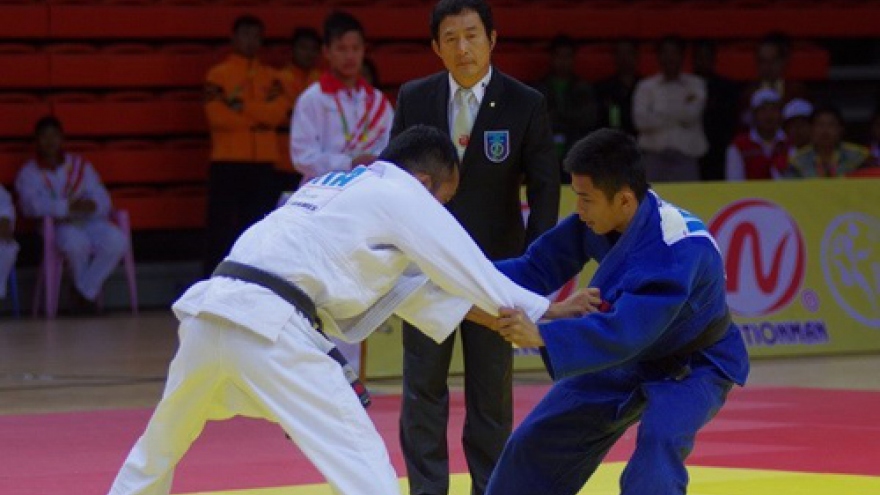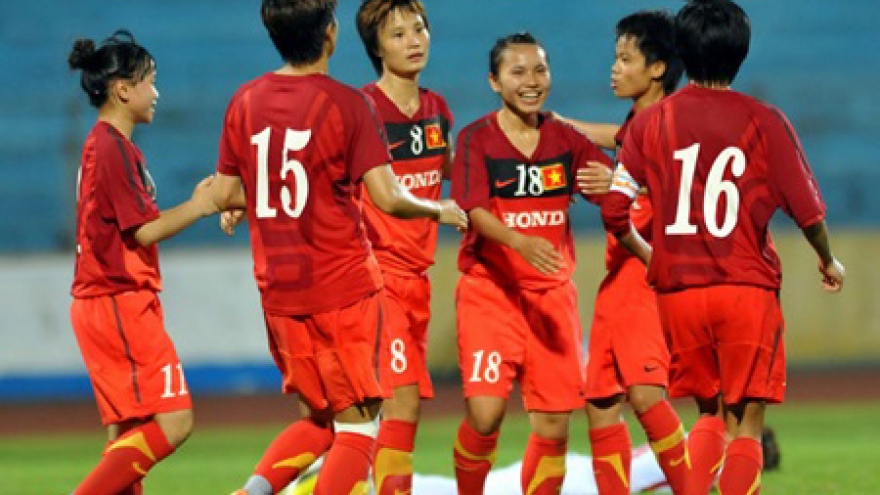Malaysia under fire for crossing Olympic sports off 2017 SEA Games
Malaysia has come under criticism after its announcement last week of a provisional list of sports to be included in the 2017 Southeast Asian (SEA) Games, which does not include several Olympic sports.
These sports include wrestling, women’s soccer, boxing, weightlifting, judo, canoeing, and athletics among others.
The SEA Games is a biennial multi-sport event involving participants from the 11 countries of Southeast Asia: Brunei, Cambodia, East Timor, Indonesia, Laos, Malaysia, Myanmar, the Philippines, Singapore, Thailand, and Vietnam.
Next year, the 29th SEA Games will be held in Kuala Lumpur, the capital city of Malaysia, from August 19 to 31.
Athletics not part of 2017 SEA Games?
In a meeting held on February 24 by the SEA Games Federation (SEAGF), Malaysia sparked controversy as it announced a proposed list of 34 sports and 342 events to be contested in Kuala Lumpur.
According to the list, a number of sports and events were excluded from the agenda, namely bodybuilding, canoeing, fencing, women’s soccer, wrestling, women’s boxing, women’s weightlifting, judo, among others.
Athletics alone would lose eight of its events, including the marathon (men’s and women’s), 10,000m (men’s and women’s), 3,000m steeplechase (men’s and women’s), men’s decathlon and women’s heptathlon.
Malaysia’s proposed list immediately drew heavy criticism from several parties.
Secretary General of Asian Athletics Association (AAA) Maurice Nicholas responded strongly to the news, telling Reuters, “Malaysia wants to leave out eight events and that is not allowed.”
“When you undertake to organize a SEA Games, you must include all the events. If they insist on leaving them out, we will not give them the permit. They gave the reason that they can't win medals, but others train hard, how can you deny them?" he added.
Sports Minister of Malaysia Khairy Jamaluddin himself was reported by the Malay Mail to be not so happy with the list that was released by the Olympic Council of Malaysia (OCM) on Wednesday last week.
In a move to pressure Malaysia, sports officials of Thailand, Indonesia, the Philippines, Singapore, Myanmar, and Laos have warned that they would not send their athletics team to Kuala Lumpur unless the hosts revised their decision.
SEA Games – when will the ‘regional’ stop being ‘factional’?
The Vietnamese General Department of Sports and Physical Training will request a full report on the matter from the Olympic Council of Vietnam at a meeting on February 29, after which Vietnam is to send an official proposal letter to the hosts of the 2017 SEA Games to protect the rights of Vietnamese athletes, said Tran Duc Phan, deputy general director of the general department.
Vietnam’s top priority is not rankings or medals, but that Olympic sports must be included in the official agenda of the SEA Games, Phan said.
The Vietnamese delegation to the meeting with SEAGF on February 24 also proposed that several sports be included in the Games, including vovinam, a traditional Vietnamese martial art, according to Hoang Quoc Vinh, general director of the Division of International Cooperation under the general department.
The SEAGF will hold the next meeting on July 13 and 14 to conclude the list of sports and events at the Games, General Secretary of the Olympic Council of Vietnam Tran Van Manh said.
“The participating nations may submit their proposals, but the final decision still rests on the hosts,” Manh said.
Six out of the eight athletic events excluded from the list were Vietnam’s medal-winning events at the 2015 SEA Games in Singapore.
Commenting on this, head of the athletics department at the General Department of Sports and Physical Training Duong Duc Thuy said, “the proposed list by Malaysia only solidifies the ‘factional’ image of the 2017 SEA Games in the eyes of the athletics associations which we are a member of.”
Facing immense public pressure, the secretary general of the Olympic Council of Malaysia said on Singapore’s Today news site, “this is just an initial proposal by Malaysia. We welcome all feedback before drafting the final list in July.”
This is not the first time a host country of the SEA Games has come under criticism for favoring their teams by excluding sports and events where they have no medal-winning athletes, and including native sports unfamiliar to other participating nations.
In 2013, Myanmar drew the ire when it included ‘chinlone,’ its traditional ball-playing sport unheard of by many competing nations, while scrapping many Olympic sports like tennis and gymnastics.



